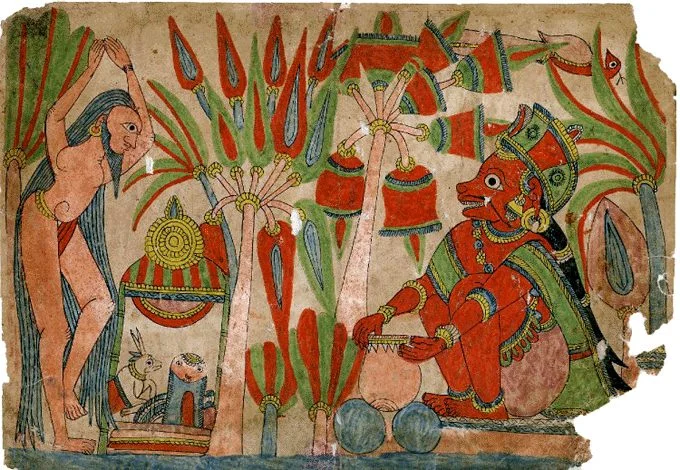How did the Vajji confederation differ from other Mahajanapadas?
1703 Sep 2024
The Vajji Confederation was a distinctive political entity in ancient India that differed significantly from other Mahajanapadas in various aspects, including its governance, military strategy, and social structure. This detailed analysis explores the unique features of the Vajji Confederation and how it set itself apart from its contemporaries.

Governance Structure
One of the primary differences between the Vajji Confederation and other Mahajanapadas was its governance structure. The Vajji Confederation was a republic, unlike the majority of Mahajanapadas, which were typically monarchies.
Decentralized Governance
Unlike the centralized monarchies of other Mahajanapadas, the Vajji Confederation operated through a decentralized system where power was distributed among various clans. Each clan retained a degree of autonomy and had its own local governance structures.
Collective Decision-Making
In the Vajji Confederation, decision-making was a collective process involving representatives from different clans. This contrasts sharply with the autocratic decision-making processes in other Mahajanapadas, where a single ruler or a small group of rulers held significant power.
Military Strategy
The military strategies of the Vajji Confederation were also distinct from those of other Mahajanapadas. While many Mahajanapadas maintained large standing armies, Vajji employed a different approach.
Use of Militias
The Vajji Confederation relied on local militias instead of a centralized army. Each clan was responsible for its own defense and could mobilize its militia as needed. This system allowed for a more flexible and responsive military organization.
Defensive Tactics
Vajji’s military strategy focused more on defensive tactics rather than expansionist goals. The confederation’s military efforts were geared towards protecting its decentralized structure rather than seeking territorial conquests.
Social and Cultural Structure
The social and cultural aspects of the Vajji Confederation also differed markedly from other Mahajanapadas. The confederation’s approach to social organization and cultural practices was influenced by its republican governance.
Social Mobility
The social structure in Vajji was relatively fluid compared to the rigid hierarchies observed in other Mahajanapadas. This allowed for greater social mobility and interaction between different social classes.
Cultural Practices
The cultural practices in the Vajji Confederation reflected its republican nature. The city’s art, literature, and public life were characterized by a culture of debate and consensus, which was in contrast to the more hierarchical cultures of other Mahajanapadas.
Relations with Other Mahajanapadas
The Vajji Confederation’s interactions with neighboring Mahajanapadas were also influenced by its unique characteristics.
Diplomatic Relations
The confederation often engaged in diplomacy and formed alliances with other Mahajanapadas. Its republican structure allowed it to negotiate effectively and maintain a degree of independence.
Conflicts and Alliances
While the Vajji Confederation did engage in conflicts with neighboring Mahajanapadas, it also sought cooperative arrangements that benefited all parties involved. Its flexible approach to diplomacy was a key aspect of its interactions with other states.
Historical Impact
The Vajji Confederation’s unique characteristics had a lasting impact on the historical landscape of ancient India.
Influence on Republican Models
The Vajji Confederation’s model of decentralized governance influenced subsequent republican models in Indian history. Its approach to collective decision-making and local autonomy provided an alternative to the more common monarchical systems.
Legacy in Historical Records
The historical records of the Vajji Confederation highlight its distinctiveness among the Mahajanapadas. Its legacy as a republic provides valuable insights into the diversity of political systems in ancient India.
Conclusion
In summary, the Vajji Confederation differed from other Mahajanapadas in several key areas, including its decentralized governance, military strategies, social structure, and diplomatic interactions. These differences underscore the diversity of political systems in ancient India and the unique role of the Vajji Confederation in historical development.
0 likes
Top related questions
Related queries
Latest questions
06 Sep 2025 18
08 Aug 2025 9
07 Aug 2025 13
06 Aug 2025 22
02 Aug 2025 21
31 Jul 2025 16
